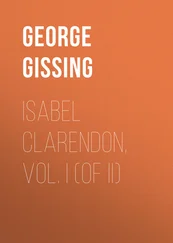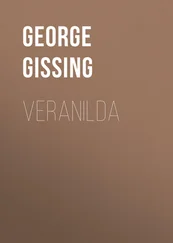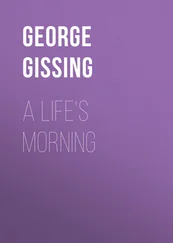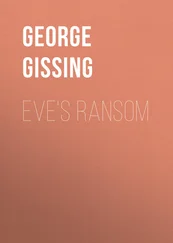George Gissing - Denzil Quarrier
Здесь есть возможность читать онлайн «George Gissing - Denzil Quarrier» — ознакомительный отрывок электронной книги совершенно бесплатно, а после прочтения отрывка купить полную версию. В некоторых случаях можно слушать аудио, скачать через торрент в формате fb2 и присутствует краткое содержание. Жанр: foreign_prose, literature_19, foreign_antique, на английском языке. Описание произведения, (предисловие) а так же отзывы посетителей доступны на портале библиотеки ЛибКат.
- Название:Denzil Quarrier
- Автор:
- Жанр:
- Год:неизвестен
- ISBN:нет данных
- Рейтинг книги:4 / 5. Голосов: 1
-
Избранное:Добавить в избранное
- Отзывы:
-
Ваша оценка:
- 80
- 1
- 2
- 3
- 4
- 5
Denzil Quarrier: краткое содержание, описание и аннотация
Предлагаем к чтению аннотацию, описание, краткое содержание или предисловие (зависит от того, что написал сам автор книги «Denzil Quarrier»). Если вы не нашли необходимую информацию о книге — напишите в комментариях, мы постараемся отыскать её.
Denzil Quarrier — читать онлайн ознакомительный отрывок
Ниже представлен текст книги, разбитый по страницам. Система сохранения места последней прочитанной страницы, позволяет с удобством читать онлайн бесплатно книгу «Denzil Quarrier», без необходимости каждый раз заново искать на чём Вы остановились. Поставьте закладку, и сможете в любой момент перейти на страницу, на которой закончили чтение.
Интервал:
Закладка:
Miss Glazzard rarely came into the town, but Serena visited Highmead at least once a week. According to the state of the weather, the friends either sat talking in Ivy's room or rambled about the grounds, where many a pretty and sheltered spot was discoverable. At such times the master of the house seldom showed himself, and, on the whole, Highmead reminded one of a mansion left in the care of servants whilst the family are abroad. Miss Mumbray was surprised when, on her arrival one afternoon, she was conducted into the presence of three persons, who sat conversing in the large drawing-room. With Ivy and her father was a gentleman whose identity she could only guess; he proved to be Mr. Eustace Glazzard, her friend's uncle.
To the greetings with which she was received Serena responded formally. It happened that her attire was to-day even more careless than usual, for, the weather being wet and cold, she had just thrown a cloak over the frock in which she lounged at home, and driven out in a cab with the thought of stepping directly into Ivy's sanctum. So far from this, she found herself under the scrutiny of two well-dressed men, whose faces, however courteous, manifested the signature of a critical spirit. The elder Mr. Glazzard was bald, wrinkled, and of aristocratic bearing; he wore gold-rimmed glasses, which accentuated the keenness of his gaze. The younger man, though altogether less formidable, had a smile which Miss Mumbray instinctively resented; he seemed to be regarding her with some special interest, and it was clear that her costume did not escape mental comment.
Ivy did her best to overcome the restraint of the situation, and for a quarter of an hour something like conversation was maintained, but, of a sudden, Miss Mumbray rose.
"We will go to my room," said Ivy, regarding her nervously.
"Thank you," was the reply, "I mustn't stay longer to-day."
"Oh, why not? But indeed you must come for a moment; I have something to show you."
Serena took leave of the gentlemen, and with show of reluctance suffered herself to be led to the familiar retreat.
"I'm afraid I have displeased you," Ivy addressed her, when the door was closed. "I ought to have asked your permission."
"It doesn't matter, dear—not a bit. But I wasn't quite in the humour for—for that kind of thing. I came here for quietness, as I always do."
"Do forgive me! I thought—to tell the truth, it was my uncle—I had spoken of you to him, and he said he should so much like to meet you."
"It really doesn't matter; but I look rather like the woman who comes to buy old dresses, don't I?"
Ivy laughed.
"Of course not!"
"And what if I do?" exclaimed the other, seating herself by the fire. "I don't know that I've any claim to look better than Mrs. Moss. I suppose she and I are about on a level in understanding and education, if the truth were told. Your uncle would see that, of course."
"Now, don't—don't!" pleaded Ivy, bending over the chair and stroking her friend's shoulder. "It's so wrong of you, dear. My father and Uncle Eustace are both quite capable of judging you rightly."
"What did you tell him about me—your uncle?" asked Serena, pettishly.
"That you were my friend, and that we read together"–
"Oh, of course! What else?"
Ivy faltered.
"I explained who you were."
"That I had a ridiculous name, and was the daughter of silly people!"
"Oh, it is unkind of you!"
"Well, and what else? I insist on knowing, Ivy."
"Indeed, I didn't say one word that you mightn't have heard yourself. I think you can believe me, dear?"
"To be sure I can. But then no doubt your father told him the rest, or has done by this time. There's no harm in that. I like people to know that I am independent. Well, now tell me about him . He isn't a great favourite of yours, is he?"
"No, not a great favourite." Ivy seemed always to weigh her words. "I don't know him very well. He has always lived in London, and I've never seen him more than once a year. I'm afraid he doesn't care much about the things that I prize most, but he is kind and very clever, I believe. Father always says he might have been a great artist if he had chosen."
"Then why didn't he choose?"
"I can't say. So many people seem to fall far short of what they might have been."
"Women do—what else can you expect? But men are free. I suppose he is rich?"
"No, not rich. He seems to have enough for his needs."
Serena indulged her thoughts.
"I felt I disliked him at first," she said, presently. "But he is improved. He can talk well, I should think. I suppose he is always in clever society?"
"I suppose so."
"And why doesn't he invite you to London, and take you to see people?"
"Oh, he knows me better than that!" replied Ivy, with a laugh.
Whilst the girls talked thus, Eustace Glazzard and his brother were also in confidential chat. They had gone to the library and made themselves comfortable with cigars—a cellaret and glasses standing within reach. The rooms at Highmead gave evidence of neglect. Guests were seldom entertained; the servants were few, and not well looked after.
"She has, I dare say, thirty thousand," William Glazzard was saying, with an air of indifference. "I suppose she'll marry some parson. Let us hope it's one of the fifty-pound curates."
"Deep in the old slough?"
"Hopelessly—or Ivy wouldn't be so thick with her."
When he had spoken, William turned with an expressive smile.
"Still, who knows? I rather like the girl. She has no humbug about her—no pretence, that's to say. You see how she dresses."
"A bad sign, I'm afraid."
"Well, no, not in this case, I think. Her home accounts for it. That old ass, Mumbray, and his wife make things pretty sour for her, as the Germans say; at least, I guess so."
"I don't dislike her appearance—intelligent at bottom, I should imagine."
There followed a long silence. Eustace broke it by asking softly:
"And how do things go with you?"
"The same as ever. Steadily down-hill I had better let the place before it gets into a thoroughly bad state. And you?"
His brother made no answer, but sat with bent head.
"You remember Stark," he said at length, "the lawyer? He wants me to stand for Polterham at the next election."
"You? In place of Welwyn-Baker?"
"No; as Liberal candidate; or Radical, if you like."
"You're joking, I suppose!"
"Where's the impossibility?"
Their eyes met.
"There's no absurdity," said William, "in your standing for Parliament; au contraire . But I can't imagine you on the Radical side. And I don't see the necessity of that. Welwyn-Baker is breaking up; they won't let him come forward again, even if he wishes. His son is disliked, and would have a very poor chance. If you cared to put yourself in touch with Mumbray and the rest of them—by love! I believe they would welcome you. I don't know of any one but the Welwyn-Bakers at all likely to stand."
"But," objected his brother, "what's the use of my standing for a party that is pretty sure to be beaten?"
"You think that's the case?"
Eustace repeated Mr. Stark's opinions, and what he had heard from Quarrier. It seemed to cost William an effort to fix his mind on the question; but at length he admitted that the contest would probably be a very close cue, even granting that the Conservatives secured a good candidate.
"That's as much as to say," observed his brother, "that the Liberals stand to win, as things are. Now, there seems to be no doubt that Liversedge would gladly withdraw in favour of a better man. What I want you to do is to set this thing in train for me. I am in earnest."
"You astonish me! I can't reconcile such an ambition with"–
"No, no; of course not." Glazzard spoke with unwonted animation. "You don't know what my life is and has been. Look I must do something to make my blood circulate, or I shall furnish a case for the coroner one of these mornings. I want excitement. I have taken up one thing after another, and gone just far enough to understand that there's no hope of reaching what I aimed at—superlative excellence; then the thing began to nauseate me. I'm like poor Jackson, the novelist, who groaned to me once that for fifteen years the reviewers had been describing his books as 'above the average.' In whatever I have undertaken the results were 'above the average,' and that's all. This is damned poor consolation for a man with a temperament like mine!"
Читать дальшеИнтервал:
Закладка:
Похожие книги на «Denzil Quarrier»
Представляем Вашему вниманию похожие книги на «Denzil Quarrier» списком для выбора. Мы отобрали схожую по названию и смыслу литературу в надежде предоставить читателям больше вариантов отыскать новые, интересные, ещё непрочитанные произведения.
Обсуждение, отзывы о книге «Denzil Quarrier» и просто собственные мнения читателей. Оставьте ваши комментарии, напишите, что Вы думаете о произведении, его смысле или главных героях. Укажите что конкретно понравилось, а что нет, и почему Вы так считаете.












